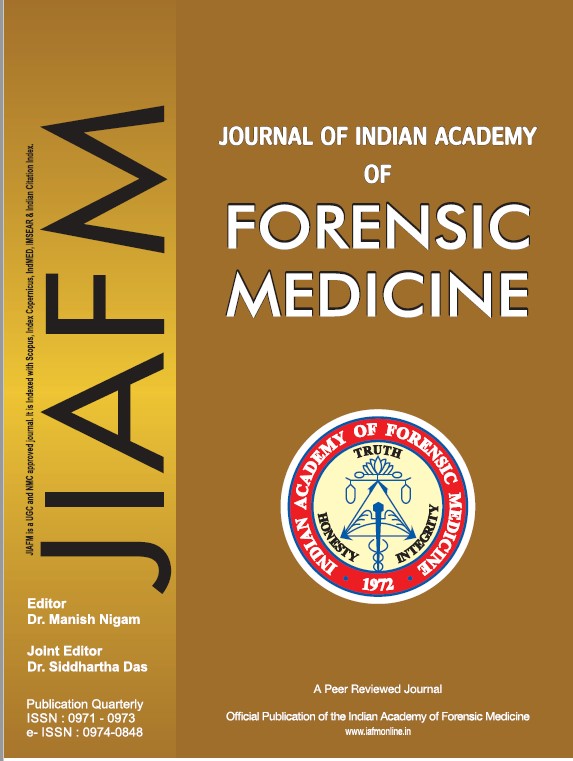Holoprosencephaly with Synophthalmia: A Perinatal Autopsy
DOI:
https://doi.org/10.48165/Keywords:
Holoprosencephaly, Synophthalmia, Perinatal Autopsy Primipara, MalformationAbstract
Holoprosencephaly with Synophthalmia is a rare congenital developmental disorder which was diagnosed by perinatal autopsy. This case report presents a detailed gross and histologic examination of eyes and brain of a baby with synophthalmia. Incidence of synophthalmia is 1 in 16000 born animal and 1 in 25000 that end in miscarriage. (Tabers cyclopedic medical Dictionary ISBNO-8036-O654-O) A 24 years primi presented with IUD at 29 weeks of her gestation. On internal examination forebrain failed to separate and, had cyclopia (Single Eye) and nose in the form of proboscis (Tubular appendage). Histopathological examination confirmed eye ball structure. Final autopsy diagnosis was Holoprosencephaly with Synophthalmia. Genetic cause and toxin can interfere with embryonic forebrain dividing process. One highly teratogenic substance is Cyclopamine (Teratology Society). Cause of death identified as multiple congenital anomalies. Karyotyping was indicated but not feasible due to delayed autopsy. This case presented here not only of its rarity but also rarity of its diagnosis by perinatal autopsy. Legal and ethical constrains need to be addressed carefully otherwise perinatal autopsy which is gold standard in diagnosing perinatal death will be a dying art.
Downloads
References
NINDS Holoencephalopathy Information page. The Carter Center for Research in Holoprosencephaly
Falling rates of perinatal post-mortem examination – Arch Dis Child Fetal Neonatal Ed. 2006 Nov; 91 (6): F 465.
Johns N AL, Salti W, Cox P, Killby MD. A comparative study of prenatal ultrasound findings and post-mortem examination in a tertiary referral center. Prenut Diag 2004; 24: 339-346.
Crane JP, Lefevre ML, Winborn RC, Evans JK, E Wignan Bu, Bain RP et al. A randomized trial of prenatal ultrasonographic screening: Impact on the detection, management, and outcome of anomalous foetuses. J. of obstetrics and Gynecology December 1999, Volume 94: Issue. 6 – P 915 – 920.
Long G, Spring A. A comparative study of routine versus selective fetal anomaly ultrasound scanning. 1998, 5: 6-10, © 1999 the American College of obstetricians and Gynaecologists.


